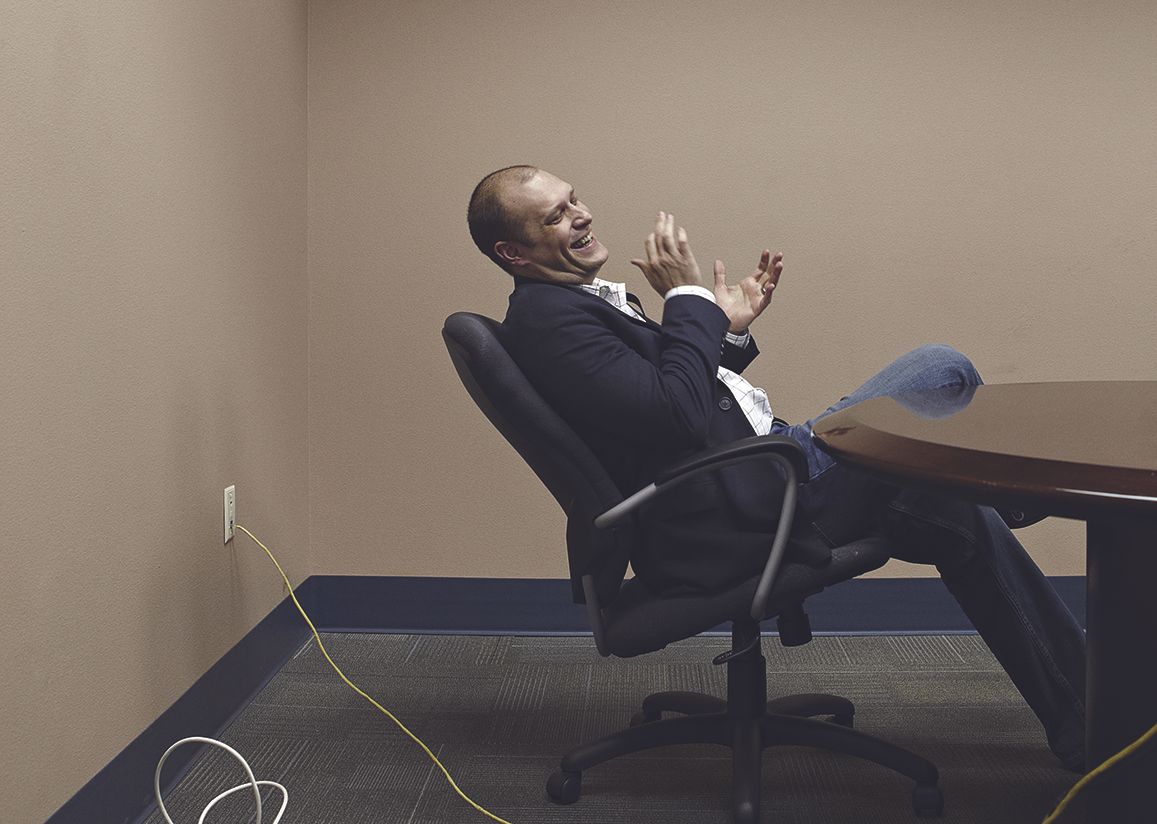Call centres: call centre agents sterilised without their knowledge? What really happens behind the scenes

In India, call centre bosses allegedly sterilised female call centre agents without their knowledge between 2004 and 2008, according to Gurudas Dasgupta, a powerful trade unionist who has since passed away. According to various experts, chatbots will completely replace them within five years.
Fact-checking in BPO and AI, where the employee experience has been established as the new mantra. And a visit, with photos, to the prettiest call centres.
Call centre operators sterilised without their knowledge in India in 2008
The General Secretary of the All-India Trade Union Congress (AITUC), Gurudas Dasgupta, has spoken out strongly against the attitude of certain call centres and BPO companies, which he accuses of ‘exploiting’ their staff. But beyond the violation of Indian labour law, with working days of up to 12 hours (the legal maximum is 48 hours per week) and the denial of the right to form associations, let alone trade unions, Mr Dasgupta made an even more serious accusation in an interview with the leading daily newspaper The Hindu: he has received complaints that some call centres or BPO companies are administering contraceptive powders to their female employees by mixing them into the canteen food, in order to prevent births and long maternity leave and reduce operating costs. According to Mr Dasgupta, who is also a member of parliament in New Delhi for the Communist Party of India, these complaints have come from numerous cities such as Delhi, Chennai and Bangalore.

Sterilised without their knowledge, chained to their workstations, raped by shared taxi drivers, as reported in other articles in the local press... or when being on the other end of the line means being on the other end of the whip.
E/Y, Gartner, Nikhil Gupta, Qualtrics, those and what to believe from prospective studies
Gurudas Dasgupta died in 2019. The case of the sterilisation of pregnant call centre associates has never been solved, but even recently, Indian employers in the ITO and BPO sectors have been caught red-handed for discriminatory practices against pregnant employees. Tata Consultancy Services, Randstad, and BPO call centres were suspected of forcing their pregnant employees to resign in order to avoid medical and financial costs. India was long the world's leading employer in this sector before being overtaken by the Philippines.
Numerous researchers with PhDs have studied the working conditions of Indian women in call centres, particularly the impact of night shifts. In 2017, more than 22 studies and reports on this subject were published, the result of work by Indian scientists and sociologists.
Cinema and literature have even made young graduates working or starting their professional lives in call centres the heroes or protagonists of films and comedies. The tea boy in Slumdog Millionaire is famous, but Nalini by Day, Nancy by Night, by Sunali Gulati, is also worth watching. In this 27-minute documentary, we discover how American culture spreads during these night shifts, the changes in first names, the conversations between American consumers and customers and customer associates.
In France, the call centre profession, and in particular its professional union of the largest outsourcers, the SP2C, has been commissioning E/Y to produce an annual barometer on the state of outsourcing for several years. ‘It's often riddled with errors, but the colours of the slides are pretty,’ says one industry insider, who no longer attends the study's presentation ceremony. One of the recent studies looked at employee well-being in contact centres. This is because the industry has made real efforts to improve working conditions and protect the mental health of employees, particularly in the FSM (French Speaking Market). However, the mainstream media continues to portray a negative image of the industry.
Qualtrics recently published a study estimating that major brands could recover £3 trillion if they managed to improve customer journeys and address the pain points that often damage them. ‘Qualtrics producing these kinds of figures is understandable: the company sells solutions and software that enable customer and employee experience monitoring. But it's also the company that stole personal data to help politicians prospect and canvass before elections,’ says a former Accenture consultant who is now self-employed.
Should we equip ourselves with new SaaS, replacing everything with AI and conversational agents?
In India and the Philippines, many companies now offer AI agents, which they predict and claim are capable of handling 80 to 90% of customer service requests. LimeChat is one example. Nikhil Gupta, its co-founder, recently told an English-language newspaper: ‘Generative AI agents enable clients to slash by 80% the number of workers needed to handle 10,000 monthly queries.’

Solutions 30 strengthens its panel of BPO and business management service providers in Tunisia
One thing is certain, says the CEO of a specialist monitoring company in the sector: ‘Conversational agents are now much more effective than the callbots of recent years, if you know how to train them. And AI makes it possible to process large volumes of documents and plan complex sequences in customer journeys.’
Not testing them or incorporating them into customer services or BPM is a serious oversight. Recently, Solutions 30, the European leader in the maintenance and installation of connected objects (Liveboxes, etc.), which until now relied on the service provider Umanlink in Tunisia, has just reviewed its business management with a new partner, complementing its current system.
‘The use of AI is becoming essential in customer journeys,’ explains one of the executives at Solutions 30. ‘And so is the relevant use that our partners must make of it. We are increasingly choosing them based on their ability to incorporate AI tools that have proven their effectiveness,’ says Amaury Boilot, Secretary General of Solutions 30.
Conveying and describing the reality of remote customer service
To see and hear what is done, said and practised in contact centres, you need to visit them and set aside the clichés, fears and myths that are associated with them and perpetuated. The stakes are high: in India, the IT sector is worth €243 billion, with 1.7 million employees working in BPO and data handling centres. The conversational AI market is growing by 24% per year and is expected to reach $35 billion by 2035, according to Grand View Research. LimeChat's sales grew from $68,000 in 2022 to €1.3 million in 2024. The start-up has now integrated Microsoft Azure's LMs and is collaborating with Kapiva, a manufacturer of Ayurvedic products, for example. Sales of competitor Reliance are experiencing similar growth.
But the challenge may also be to question biased studies, such as the one by Klarna, which had a damaging impact on major players in the sector, including TP and Teleperformance.
Marguerites, call centre platforms photographed around the world

Showing the reality on the floor, on set
It took films such as About Kim Sohee to give us a clear idea of the pressure that major brands can put on their customer service providers, which impacts working conditions. And the power of dramas based on true stories, in India, Korea, at telecom operators or major coffee and pizza brands. They all aim to deliver first-class customer service, but often demand pricing conditions from their partners that do not allow for this. ‘To talk about the reality of call centres is to show this, as well as the positive stories that take place there,’ says Neville Wilshire, whose series The Call Centre achieved incredible ratings on the BBC. The series chronicled the daily life of a company based in Swansea.
A graduate of the Gobelins photography school, Edouard Jacquinet had the opportunity to visit Scotland, the Philippines, Morocco, Cameroon, Colombia and other countries, travelling to the often highly secretive locations of outsourced call centres. These included TP, B2S (now Konecta), Sitel and Vipp-Interstis. He also visited Las Vegas, home to a large, remarkable call centre that handles support requests for a major Californian car insurance company.
Published by Art Paper Editions, the book attracted attention upon its release. See here for a report filmed in Paris during an exhibition dedicated to the 10th arrondissement town hall and featuring Marguerites.



